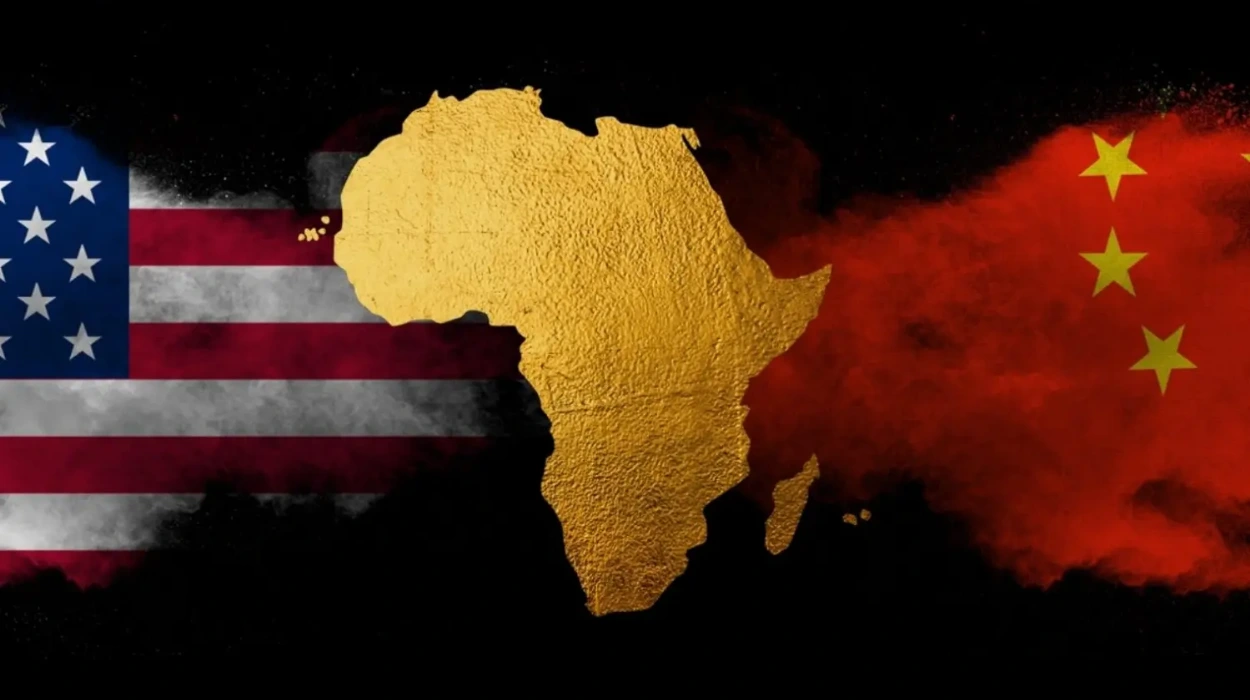The rise of China as the leading economic associate of Africa has altered the pattern of trade and infrastructure of the region by the year 2025. Highways turned into digital corridors, Chinese influence has spread to various spheres, which has been promoted by aggressive investment policies and the Belt and Road Initiative (BRI). These changes are not only economic in scale but these changes redefine the diplomatic and policy affinities in the continent.
By the beginning of 2025, trade between China and Africa is projected to be more than 4 times that of the United States. More than trade, Chinese companies have key interests in the extraction of cobalt, lithium, and rare Earths-resources that are indispensable both to the green transformation of the world and to the digital revolution. This economic activity is extensive, making Beijing a long-term partner in Africa in the development of industries and energy change.
Belt and Road Integration
The BRI has brought African countries together, both physically and digitally, including an Addis Ababa-Djibouti Railway to 5G telecommunication deployments in Nigeria and Kenya. These projects facilitate easier logistics, enhance faster interregional trade, and entrench China in development strategies of the country. These projects are usually accompanied by Chinese loans and public-private alliances which boost both short-term production capabilities and long-term geopolitical power.
Resource and Investment Strategies
China has also gained significant mining concessions in places like the Democratic Republic of the Congo and Zambia where it could obtain access to minerals that are valuable in the manufacture of electric vehicles and electronics. Such investments comprise full-cycle processing plants, value addition within the country and making China a stronger brand as a host of development. But issues of labor conditions, environmental effects, and host countries debts on a long-term basis also emerge with this model.
Geopolitical and Strategic Implications for US Policy
The growing prominence of China on the economic horizon of Africa is leaving the United States with strategic dilemmas. Although the US still continues to be a major security partner and development financing institution, it has lost its influence in commercial alliances relatively.
Competitive Challenges in Trade and Influence
The lapse of the African Growth and Opportunity Act (AGOA) in September 2025 eliminates trade preferences that have existed since time immemorial and supported exports made by Africans into the US. This policy gap is in line with the aggressive drive of China to integrate economically by bilateral and multilateral interactions that tend to bypass governance or rights based conditionalities that are traditionally attached to western aid.
The challenge that US policymakers have is how to stay influential and at the same time adapt to a new environment where African nations are finding more diversified choices. Lack of AGOA creates an urgency of introducing other frameworks that are competent in economic and also in diplomatic aspects.
Reorienting US Economic Engagement
To counter these forces, the US has shifted to investment-based diplomacy. A major move that has taken such a direction was the June 2025 US-Africa Business Summit where deals valued at 2.5 billion dollars were made in the areas of technology, energy and manufacturing. The project will focus on mutual economic development and American business entry into the new markets in Africa.
However, volume and visibility of US investments remain low. Even at present, when such efforts as Development Finance Corporation (DFC) and Prosper Africa are ongoing, they do not always have the same centralized coordination and quick deployment that Chinese programs have. To close this gap, there will be a need to mobilize the political will and enhanced mobilization of the private sector.
Navigating the Complex Multipolar African Landscape
In 2025, Africa will be a multipolar continent. Besides China and the US, other nations such as India, Russia and Gulf countries have all begun to expand economic engagement. It is this expanded geopolitical environment that the US policy needs to be both agile, transparent, and respectful of African sovereignty.
Balancing Diplomacy and Competition
African governments love the fact that China has been fast in delivering these big projects but they also complain that there are exploitative practices and debts. Infrastructure development with good governance, labor and environmental standards have become the collaboration that many are pursuing today. The US can be able to establish itself as a responsive and ethical partner that favors long-term sustainability.
But the American approaches should not position Africa as a US-China battleground only. The alternative to this is a continental and African-centered policy, or one that is supportive of the African Continental Free Trade Area (AfCFTA), and fortifies institutions at the local level, because it can guarantee higher policy alignment and development impact.
Recognizing African Agency
African leaders are becoming more strident in their view of unfair cooperation. In Nairobi to Dakar, officials promote trade agreements that generate employment, transfer skills and establish regional value chains. The world powers are no longer in a position to consider Africa as a passive recipient of the aid or power but as an active partner in defining economic norms of the 21st century.
Programs by US to enable African SMEs, invest in digital infrastructure and support regional integration of trade are more likely to get traction. Alliances can be made stronger in such strategies and provide alternatives to the resource-driven engagement model of China.
Challenges Facing African Nations Amid Global Competition
The increasing popularity of Africa among the global investors does not cancel out its structural challenges. Poor infrastructures, incoherent regulatory conditions as well as skills gaps prevent the scaling of industries. In addition, issues of debt sustainability have become eminent since by 2025, repayment of Chinese loans would rise.
Debt and Development Pressures
Angola and Ethiopia are some of the countries that have increasing costs of debt-service that limit their fiscal room in domestic investment. Even though financing by the Chinese is still appealing, African countries are reconsidering the conditions and renewing agreements. This leaves a door open to the US and multilateral institutions to provide more transparent, balanced and concessional options.
Trade Continuity Without AGOA
The termination of AGOA poses a threat on African exporters especially in apparel, agricultural products and light manufacturing. These sectors lack the privilege of competitiveness in the US market. To avert this effect, governments in Africa are hastening to diversify their exports and boost their intra-African trade in accordance with the African trade agreements (AfCFTA) protocols.
At the same time, business councils and chambers of commerce are demanding a new, mutual trade deal, which can be in line with the US commercial interests and development goals of Africa.
China’s Rise and the Future of US-Africa Relations
The economic emergence of China in Africa has changed the way the world interacts with Africa. This conversion has been a challenge and an opportunity in the case of the United States. The US-Africa relations can be rejuvenated through a recalibrated policy approach, which will harness investment, respect the agency of Africans and pursue sustainability, in the context of increasing global competitiveness.
The evolving dynamics reflect a broader shift in how diplomacy and development intersect in an increasingly multipolar world. Africa’s growing voice on global issues, from trade norms to climate governance, ensures it will remain central in shaping the next chapter of international economic policy. How the US adapts to these realities may determine not only the future of its partnership with Africa, but its strategic role in the 21st-century global order.





